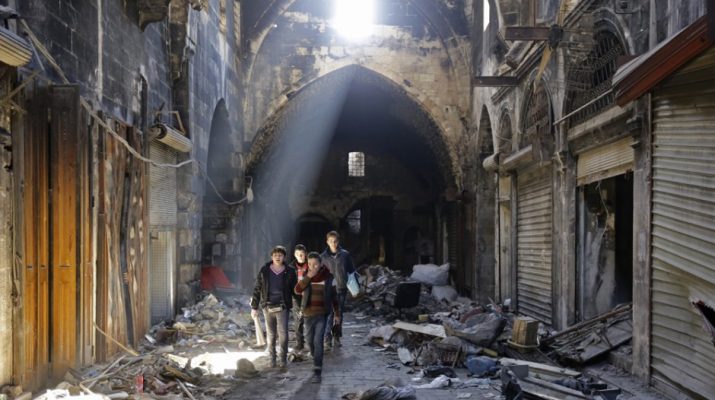Syrian opposition officials said they will not be discussing the future of President Bashar al-Assad during peace talks being held in Kazakhstan, and are instead focused on securing the current ceasefire.
“No one has discussed this [the future of Assad],” Yahya al-Aridi, spokesman for the opposition delegation and adviser to the High Negotiations Committee (HNC) told Al Jazeera on Sunday.
Assad was still a “red line” for the opposition, he explained, adding that there was “no context” for discussing the president’s role after a potential political solution.
“[Keeping Assad] is the best prescription for the continuation of the tragedy. If he is capable of carrying on his shoulders the death of half a million people and the displacement of half of the population […] then he can stay. But in reality, things do not work this way,” Aridi said.
Two-day negotiations are set to begin on Monday.
Officials say meetings will be aimed at consolidating the nationwide ceasefire that went into effect last month.
“At this stage, we have one goal, which has been agreed upon by all the parties included. That is to consolidate the ceasefire. That is why we came here,” Osama Abu Zaid, spokesman for the Free Syrian Army, one of the rebel groups fighting Assad’s government, told Al Jazeera.
He added that his delegation had met Turkish officials on Sunday to discuss the agenda of the talks.
A ceasefire which went into effect on December 30 has largely been holding, despite pockets of violence namely in the suburbs of the capital Damascus, where Syrian government forces have been advancing to retake strategic areas.
Representatives from Moscow and Ankara will be leading the negotiations with the support of Iranian diplomats.
The United Nations special envoy for Syria, Staffan de Mistura, will also be attending the talks to play a supportive role.
Earlier this month, Assad declared that his government was ready to negotiate “on everything” during the Astana meetings.
Yet, the president’s future has been one of the main sticking points that have led to the failure of previous efforts to end close to six years of war in Syria.

